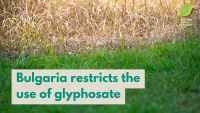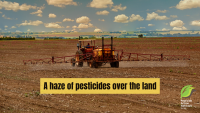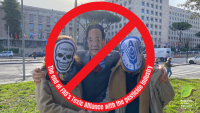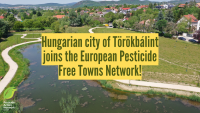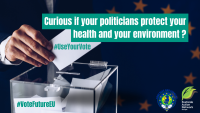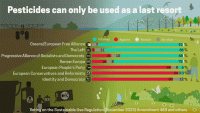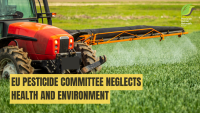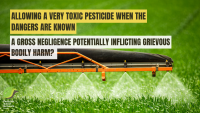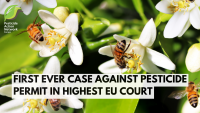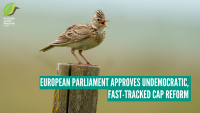Blog
Bulgaria restricts the use of glyphosate
The use of glyphosate will partially be banned in Bulgaria.
A haze of pesticides over the land
There is a haze of pesticides all over our rural areas. They spread into people's gardens, houses, playgrounds and even nature reserves.
The end of FAO’s Toxic Alliance with the pesticide industry
The three-year controversial partnership between the UN Food and Agriculture Organization (FAO) and pesticide lobby group CropLife International has finally ended.
Hungarian city of Törökbálint joins the European Pesticide Free Towns Network
The Hungarian city of Törökbálint has joined the European Pesticide Free Towns Network.
Make your vote count in the EU elections! See what candidates think about pesticides
As the European Union elections approach, citizens across Europe should understand the immense impact their votes can have on the future of Europe, and beyond.
EU citizens asked for less pesticides. Find out which politicians listened. Make your vote count!
EU citizens have repeatedly asked to reduce pesticides. They want to protect their health and biodiversity and ensure a long-term perspective for farmers. Which politician listened and acted?
EU Pesticide Committee neglects health and environment
The pesticide committee meeting (SCoPAFF) this week showcases significant shortcomings in the way European authorities address critical health and environmental risks related to pesticides.
Allowing a very toxic pesticide when the dangers are known: a gross negligence potentially inflicting grievous bodily harm?
All too often a very toxic pesticide is still in use, many years after the dangers have been demonstrated by an impressive amount of scientific evidence.
First ever case against pesticide permit in highest EU Court
Last week we took a historic step. For the very first time, pesticide approval is challenged in appeal in the Court of Justice of the EU. This was not possible before.
A deathblow for the legitimacy of the CAP
Last week, a large majority of the European Parliament voted in favour of the Commission’s proposal to drastically weaken or delete the majority of the environmental conditionality of the Common Agricultural Policy (CAP).
